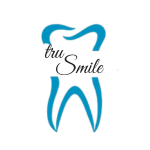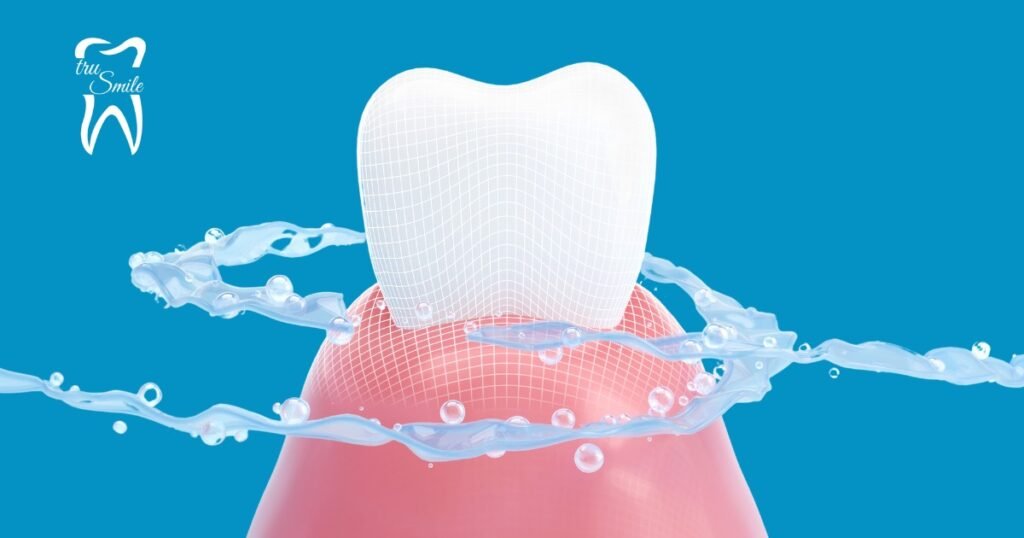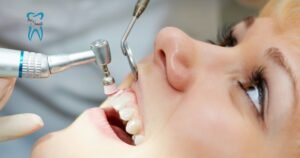Ever noticed a sticky, yellowish layer building up on your teeth? No matter how often you brush, it does not seem to go away, right?
This persistent layer is known as calculus. It can lead to serious oral health issues if not dealt with promptly.
The good news is that dental cleaning can help.
Dental cleaning is a professional procedure that removes plaque and tartar. It also helps maintain a healthy smile and prevents gum disease.
However,
It can be hard to figure out what dental cleaning is, and what kinds are available. Many people might not do it because they think it is not necessary.
This complete guide will explain everything you need to know about getting your teeth cleaned in Pakistan so that you can make an informed decision to protect your oral health.
Let’s start!
What is Dental Cleaning?
Dental cleaning is also known as dental prophylaxis. It is a professional procedure that removes plaque and tartar from the teeth and gums. It also removes bacteria that cannot be eliminated with regular brushing and flossing.
Regular brushing gets rid of debris on the surface but dental cleaning gets to places that people often miss.
Plaque turns into tartar if it is not cleaned by a dentist. Tartar can cause gum disease, cavities, and bad breath.
Dental cleaning is performed by a dentist using specialized tools to thoroughly clean areas that a toothbrush cannot reach.
Regular cleanings are becoming more popular in Pakistan as they are good for your oral health.
Studies show that nearly 20% of adults over the age of 35 experience some form of gum disease due to a lack of oral care.
Regular cleanings help lower the risk by keeping gum disease and cavities at bay. They also prevent plaque buildup. Plaque is the most common cause of bad breath, yellow teeth, and other dental issues.
Types of Dental Cleanings
There are different types of dental cleanings based on your oral health and the amount of tartar and plaque that has built up.
Here is a breakdown:
Prophylaxis Cleaning
This is the standard cleaning procedure for individuals with generally good oral health. It is preventive and is typically done every six months to maintain good oral hygiene and prevent buildup.
Prophylaxis removes plaque and tartar from above the gum line. It is primarily for patients with healthy gums.
Scaling and Root Planing
Scaling and root planing are recommended for individuals showing signs of gum disease. It is also known as deep cleaning.
It is a two-part process. First is scaling. It removes plaque and tartar from below the gum line. The second part is root planing. It smooths the root surfaces to help gums reattach to teeth.
MThis procedure can take more than one session, depending on the severity of the gum disease.
Gross Debridement Cleaning
A gross debridement cleaning is needed for people who have not been to the dentist in years and have a lot of plaque and tartar buildup.
This procedure removes large deposits of tartar and plaque. This often serves as a precursor to a more thorough cleaning, such as prophylaxis or deep cleaning.
Periodontal Maintenance
Patients who have undergone treatment for gum disease require regular periodontal maintenance.
Periodontal maintenance is different from regular cleanings because it is designed to manage and control gum disease. It is typically scheduled more frequently, such as every 3-4 months.
Each type serves a specific purpose. Your dentist will recommend the best option based on your oral health condition.
The Dental Cleaning Process
The dental cleaning process typically involves three main steps:
Examination
The dentist checks your mouth for cavities, gum disease, and other problems before starting the procedure. They may use a small mirror to view hard-to-reach areas and assess the condition of your gums.
Plaque and Tartar Removal (Scaling)
Scaling occurs after an examination. The dentist uses specialized tools to remove plaque and tartar around the gumline and between teeth.
If tartar has accumulated significantly, they may need to use an ultrasonic scaler. It vibrates to break down the hardened deposits.
Polishing and Fluoride Treatment
Once your teeth are free of tartar, the dentist polishes them using a gritty toothpaste and a high-powered brush.
The polishing helps remove surface stains. Your teeth become more smooth and bright.
Finally, they may apply a fluoride treatment to protect your teeth from cavities for several months.
This process is painless for most patients. Although there may be minor discomfort if tartar buildup is extensive.
Dental Cleaning vs. Teeth Scaling
Many people in Pakistan often confuse dental cleaning with teeth scaling.
Although both procedures focus on removing plaque and tartar, they differ in depth and purpose.
Dental Cleaning
This is a preventive procedure aimed at maintaining oral health.
It is less invasive. It removes surface plaque and tartar only from places where it is present. This process helps prevent gum disease. It is ideal for maintaining general oral hygiene.
Teeth Scaling
Scaling is usually part of a deep cleaning (scaling and root planing) procedure.
It is recommended for those experiencing gum issues. It requires a dentist’s expertise. Scaling treats gum disease and involves cleaning below the gum line.
If you visit a dentist for routine prophylaxis, they may recommend scaling only if there are signs of gum disease or deep tartar buildup.
Benefits of Dental Cleaning
Cleaning your teeth is about more than just making your smile look better.
Here are some important benefits of having regular dental cleanings:
Prevents Cavities
Dental cleaning helps remove plaque which is the main cause of tooth decay.
If you do not get rid of the plaque, the bacteria can wear down the enamel which can cause cavities.
Reduces Risk of Gum Disease
Dental cleaning removes plaque and tartar buildup around the gums. It lowers the risk of developing gum disease which is prevalent in Pakistan.
Prevents Bad Breath
Dental cleaning targets the bacteria responsible for bad breath. This improves your overall breath quality.
Helps with Early Detection
Regular dental visits for cleaning can lead to early detection of oral health issues. These may include gum diseases and cavities.
This allows for timely treatment.
Conclusion
Dental cleaning in Pakistan is an important part of preventive healthcare that provides more than just cosmetic benefits.
It protects against gum disease and tooth decay. It also improves overall health by removing harmful bacteria.
Schedule your dental cleaning appointment today and take a proactive step toward a healthier smile.




2 Responses